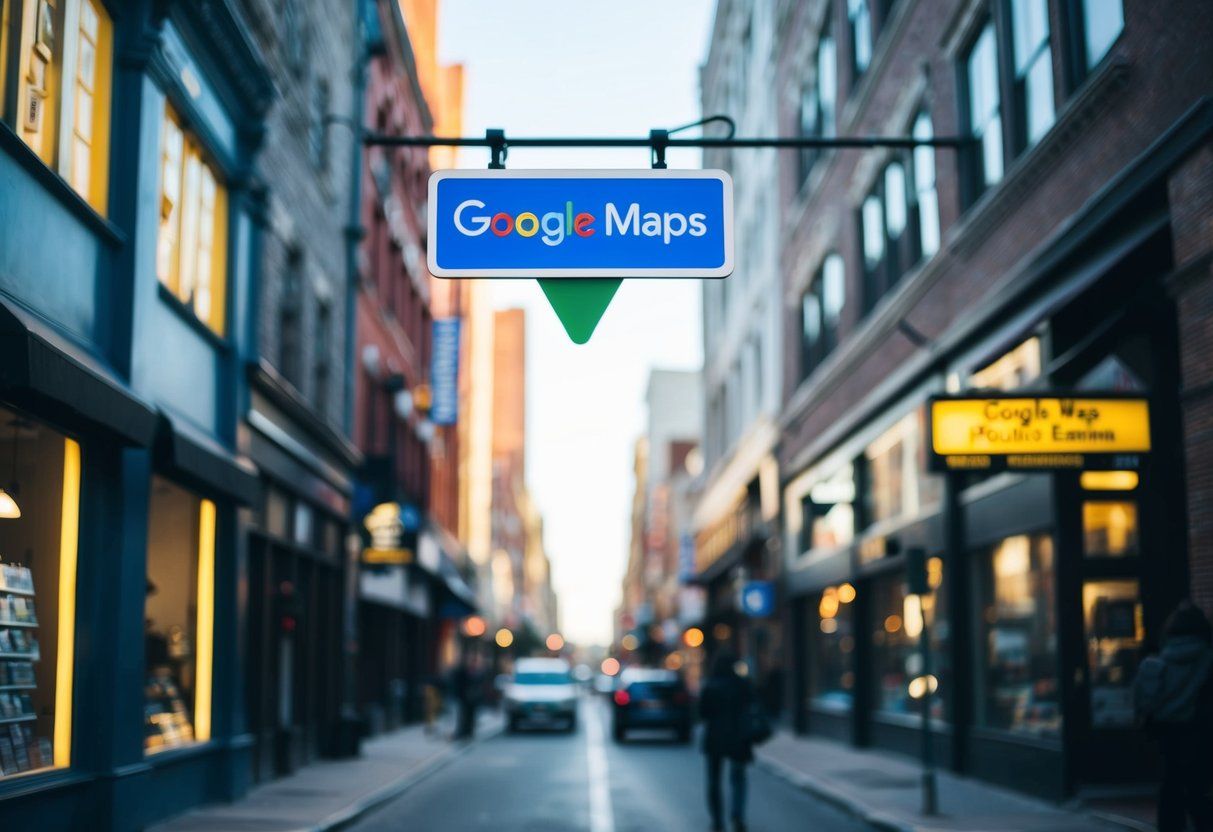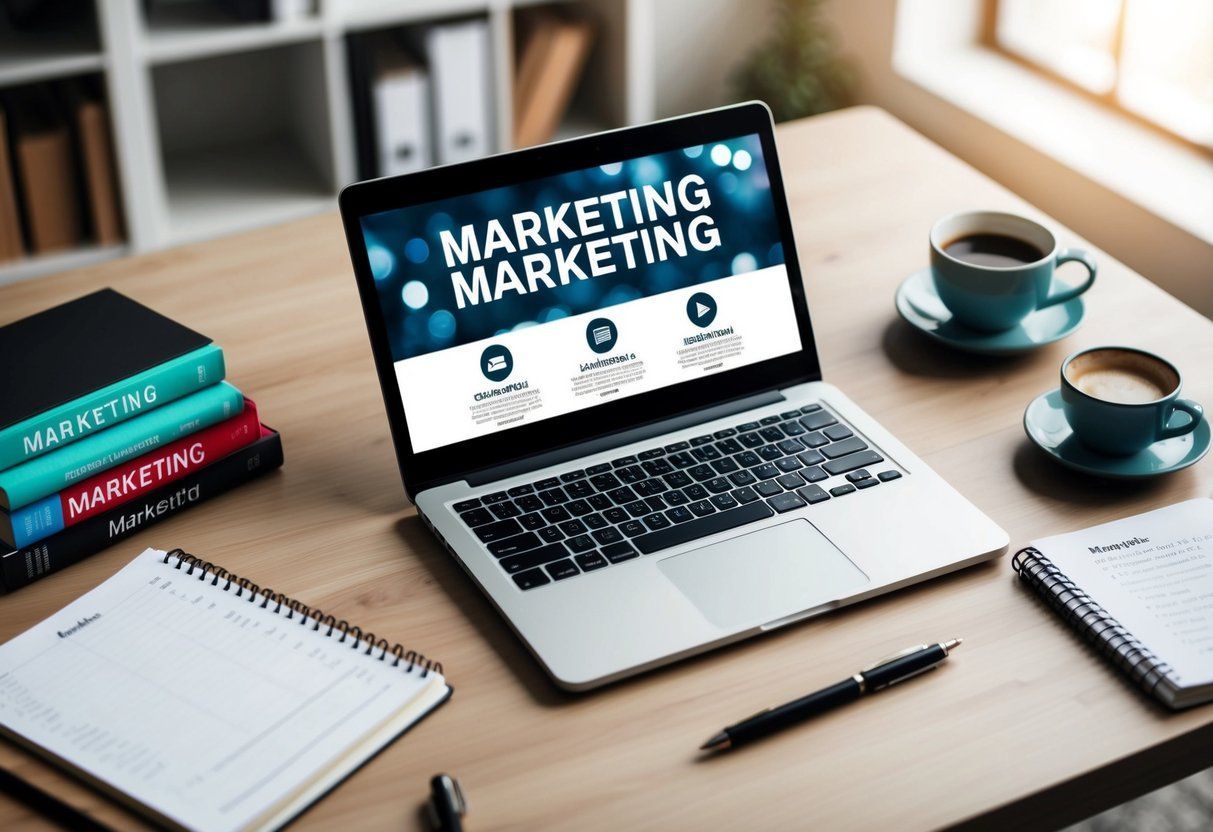New York City Lead Generation Los Angeles, CA Lead Generation Chicago, IL Lead Generation Houston, TX Lead Generation Phoenix, AZ Lead Generation Philadelphia, PA Lead Generation San Antonio, TX Lead Generation San Diego, CA Lead Generation Dallas, TX Lead Generation San Jose, CA Lead Generation Austin, TX Lead Generation Jacksonville, FL Lead Generation Fort Worth, TX Lead Generation Columbus, OH Lead Generation Indianapolis, IN Lead Generation Charlotte, NC Lead Generation San Francisco, CA Lead Generation Louisville, KY Lead Generation Seattle, WA Lead Generation Nashville, TN Lead Generation Denver, CO Lead Generation Washington, DC Lead Generation Oklahoma City, OK Lead Generation El Paso, TX Lead Generation Boston, MA Lead Generation Portland, OR Lead Generation Las Vegas, NV Lead Generation Detroit, MI Lead Generation Memphis, TN Lead Generation Baltimore, MD Lead Generation Milwaukee, WI Lead Generation Albuquerque, NM Lead Generation Tucson, AZ Lead Generation Fresno, CA Lead Generation Sacramento, CA Lead Generation Kansas City, MO Lead Generation Mesa, AZ Lead Generation Atlanta, GA Lead Generation Omaha, NE Lead Generation Colorado Springs, CO Lead Generation Raleigh, NC Lead Generation Long Beach, CA Lead Generation Virginia Beach, VA Lead Generation Miami, FL Lead Generation Oakland, CA Lead Generation Minneapolis, MN Lead Generation Tulsa, OK Lead Generation Bakersfield, CA Lead Generation Wichita, KS Lead Generation San Antonio, TX Lead Generation Las Vegas, NV Lead Generation Louisville, KY Lead Generation Milwaukee, WI Lead Generation Albuquerque, NM Lead Generation Tucson, AZ Lead Generation Fresno, CA Lead Generation Sacramento, CA Lead Generation Kansas City, MO Lead Generation Mesa, AZ Lead Generation Omaha, NE Lead Generation Colorado Springs, CO Lead Generation Long Beach, CA Lead Generation Virginia Beach, VA Lead Generation Oakland, CA Lead Generation Tulsa, OK Lead Generation Bakersfield, CA Lead Generation Wichita, KS Lead Generation Arlington, TX Lead Generation Tampa, FL Lead Generation Anaheim, CA Lead Generation Aurora, CO Lead Generation Santa Ana, CA Lead Generation Riverside, CA Lead Generation Corpus Christi, TX Lead Generation Lexington, KY Lead Generation Pittsburgh, PA Lead Generation Anchorage, AK Lead Generation Stockton, CA Lead Generation Cincinnati, OH Lead Generation St. Paul, MN Lead Generation Toledo, OH Lead Generation Newark, NJ Lead Generation Plano, TX Lead Generation Henderson, NV Lead Generation Lincoln, NE Lead Generation Orlando, FL Lead Generation Jersey City, NJ Lead Generation Chula Vista, CA Lead Generation Fort Wayne, IN Lead Generation St. Petersburg, FL Lead Generation Chandler, AZ Lead Generation Laredo, TX Lead Generation Norfolk, VA Lead Generation Durham, NC Lead Generation Madison, WI Lead Generation Lubbock, TX Lead Generation Irvine, CA Lead Generation Winston-Salem, NC Lead Generation Glendale, AZ Lead Generation New York City Dentist Marketing Los Angeles, CA Dentist Marketing Chicago, IL Dentist Marketing Houston, TX Dentist Marketing Phoenix, AZ Dentist Marketing Philadelphia, PA Dentist Marketing San Antonio, TX Dentist Marketing San Diego, CA Dentist Marketing Dallas, TX Dentist Marketing San Jose, CA Dentist Marketing Austin, TX Dentist Marketing Jacksonville, FL Dentist Marketing Fort Worth, TX Dentist Marketing Columbus, OH Dentist Marketing Indianapolis, IN Dentist Marketing Charlotte, NC Dentist Marketing San Francisco, CA Dentist Marketing Louisville, KY Dentist Marketing Seattle, WA Dentist Marketing Nashville, TN Dentist Marketing Denver, CO Dentist Marketing Washington, Dentist Marketing Oklahoma City, OK Dentist Marketing El Paso, TX Dentist Marketing Boston, MA Dentist Marketing Portland, OR Dentist Marketing Las Vegas, NV Dentist Marketing Detroit, MI Dentist Marketing Memphis, TN Dentist Marketing Baltimore, MD Dentist Marketing Milwaukee, WI Dentist Marketing Albuquerque, NM Dentist Marketing Tucson, AZ Dentist Marketing Fresno, CA Dentist Marketing Sacramento, CA Dentist Marketing Kansas City, MO Dentist Marketing Mesa, AZ Dentist Marketing Atlanta, GA Dentist Marketing Omaha, NE Dentist Marketing Colorado Springs, CO Dentist Marketing Raleigh, NC Dentist Marketing Long Beach, CA Dentist Marketing Virginia Beach, VA Dentist Marketing Miami, FL Dentist Marketing Oakland, CA Dentist Marketing Minneapolis, MN Dentist Marketing Tulsa, OK Dentist Marketing Bakersfield, CA Dentist Marketing Wichita, KS Dentist Marketing Arlington, VA Dentist Marketing LeadLane Terms Service in Sunland, CA LeadLane Design Services in Sunland, CA Logo Design in Sunland, CA Business Card Design in Sunland, CA Brand Guide Services in Sunland, CA Stationery Design in Sunland, CA New York City, NY Print Shop Lead Generation Los Angeles, CA Print Shop Lead Generation Chicago, IL Print Shop Lead Generation Houston, TX Print Shop Lead Generation Phoenix, AZ Print Shop Lead Generation Philadelphia, PA Print Shop Lead Generation San Antonio, TX Print Shop Lead Generation San Diego, CA Print Shop Lead Generation Dallas, TX Print Shop Lead Generation San Jose, CA Print Shop Lead Generation Austin, TX Print Shop Lead Generation Jacksonville, FL Print Shop Lead Generation Fort Worth, TX Print Shop Lead Generation Columbus, OH Print Shop Lead Generation Indianapolis, IN Print Shop Lead Generation Charlotte, NC Print Shop Lead Generation San Francisco, CA Print Shop Lead Generation Louisville, KY Print Shop Lead Generation Seattle, WA Print Shop Lead Generation Nashville, TN Print Shop Lead Generation Denver, CO Print Shop Lead Generation Washington, Print Shop Lead Generation Oklahoma City, OK Print Shop Lead Generation El Paso, TX Print Shop Lead Generation Boston, MA Print Shop Lead Generation Portland, OR Print Shop Lead Generation Las Vegas, NV Print Shop Lead Generation Detroit, MI Print Shop Lead Generation Memphis, TN Print Shop Lead Generation Baltimore, MD Print Shop Lead Generation Milwaukee, WI Print Shop Lead Generation Albuquerque, NM Print Shop Lead Generation Tucson, AZ Print Shop Lead Generation Fresno, CA Print Shop Lead Generation Sacramento, CA Print Shop Lead Generation Kansas City, MO Print Shop Lead Generation Mesa, AZ Print Shop Lead Generation Atlanta, GA Print Shop Lead Generation Omaha, NE Print Shop Lead Generation Colorado Springs, CO Print Shop Lead Generation Raleigh, NC Print Shop Lead Generation Long Beach, CA Print Shop Lead Generation Virginia Beach, VA Print Shop Lead Generation Miami, FL Print Shop Lead Generation Oakland, CA Print Shop Lead Generation Minneapolis, MN Print Shop Lead Generation Tulsa, OK Print Shop Lead Generation Bakersfield, CA Print Shop Lead Generation Wichita, KS Print Shop Lead Generation San Antonio, TX Print Shop Lead Generation Las Vegas, NV Print Shop Lead Generation Louisville, KY Print Shop Lead Generation Milwaukee, WI Print Shop Lead Generation Albuquerque, NM Print Shop Lead Generation Tucson, AZ Print Shop Lead Generation Fresno, CA Print Shop Lead Generation Sacramento, CA Print Shop Lead Generation Kansas City, MO Print Shop Lead Generation Mesa, AZ Print Shop Lead Generation Omaha, NE Print Shop Lead Generation Colorado Springs, CO Print Shop Lead Generation Long Beach, CA Print Shop Lead Generation Virginia Beach, VA Print Shop Lead Generation Oakland, CA Print Shop Lead Generation Tulsa, OK Print Shop Lead Generation Bakersfield, CA Print Shop Lead Generation Wichita, KS Print Shop Lead Generation Arlington, TX Print Shop Lead Generation Tampa, FL Print Shop Lead Generation Anaheim, CA Print Shop Lead Generation Aurora, CO Print Shop Lead Generation Santa Ana, CA Print Shop Lead Generation Riverside, CA Print Shop Lead Generation Corpus Christi, TX Print Shop Lead Generation Lexington, KY Print Shop Lead Generation Pittsburgh, PA Print Shop Lead Generation Anchorage, AK Print Shop Lead Generation Stockton, CA Print Shop Lead Generation Cincinnati, OH Print Shop Lead Generation St. Paul, MN Print Shop Lead Generation Toledo, OH Print Shop Lead Generation Newark, NJ Print Shop Lead Generation Plano, TX Print Shop Lead Generation Henderson, NV Print Shop Lead Generation Lincoln, NE Print Shop Lead Generation Orlando, FL Print Shop Lead Generation Jersey City, NJ Print Shop Lead Generation Chula Vista, CA Print Shop Lead Generation Fort Wayne, IN Print Shop Lead Generation St. Petersburg, FL Print Shop Lead Generation Chandler, AZ Print Shop Lead Generation Laredo, TX Print Shop Lead Generation Norfolk, VA Print Shop Lead Generation Durham, NC Print Shop Lead Generation Madison, WI Print Shop Lead Generation Lubbock, TX Print Shop Lead Generation Irvine, CA Print Shop Lead Generation Winston-Salem, NC Print Shop Lead Generation Glendale, AZ Print Shop Lead Generation New York City, NY Sign Company Lead Generation Los Angeles, CA Sign Company Lead Generation Chicago, IL Sign Company Lead Generation Houston, TX Sign Company Lead Generation Phoenix, AZ Sign Company Lead Generation Philadelphia, PA Sign Company Lead Generation San Antonio, TX Sign Company Lead Generation San Diego, CA Sign Company Lead Generation Dallas, TX Sign Company Lead Generation San Jose, CA Sign Company Lead Generation Austin, TX Sign Company Lead Generation Jacksonville, FL Sign Company Lead Generation Fort Worth, TX Sign Company Lead Generation Columbus, OH Sign Company Lead Generation Indianapolis, IN Sign Company Lead Generation Charlotte, NC Sign Company Lead Generation San Francisco, CA Sign Company Lead Generation Louisville, KY Sign Company Lead Generation Seattle, WA Sign Company Lead Generation Nashville, TN Sign Company Lead Generation Denver, CO Sign Company Lead Generation Washington, DC Sign Company Lead Generation Oklahoma City, OK Sign Company Lead Generation El Paso, TX Sign Company Lead Generation Boston, MA Sign Company Lead Generation Portland, OR Sign Company Lead Generation Las Vegas, NV Sign Company Lead Generation Detroit, MI Sign Company Lead Generation Memphis, TN Sign Company Lead Generation Baltimore, MD Sign Company Lead Generation Milwaukee, WI Sign Company Lead Generation Albuquerque, NM Sign Company Lead Generation Tucson, AZ Sign Company Lead Generation Fresno, CA Sign Company Lead Generation Sacramento, CA Sign Company Lead Generation Kansas City, MO Sign Company Lead Generation Mesa, AZ Sign Company Lead Generation Atlanta, GA Sign Company Lead Generation Omaha, NE Sign Company Lead Generation Colorado Springs, CO Sign Company Lead Generation Raleigh, NC Sign Company Lead Generation Long Beach, CA Sign Company Lead Generation Virginia Beach, VA Sign Company Lead Generation Miami, FL Sign Company Lead Generation Oakland, CA Sign Company Lead Generation Minneapolis, MN Sign Company Lead Generation Tulsa, OK Sign Company Lead Generation Bakersfield, CA Sign Company Lead Generation Wichita, KS Sign Company Lead Generation San Antonio, TX Sign Company Lead Generation Las Vegas, NV Sign Company Lead Generation Louisville, KY Sign Company Lead Generation Milwaukee, WI Sign Company Lead Generation Albuquerque, NM Sign Company Lead Generation Tucson, AZ Sign Company Lead Generation Fresno, CA Sign Company Lead Generation Sacramento, CA Sign Company Lead Generation Kansas City, MO Sign Company Lead Generation Mesa, AZ Sign Company Lead Generation Omaha, NE Sign Company Lead Generation Colorado Springs, CO Sign Company Lead Generation Long Beach, CA Sign Company Lead Generation Virginia Beach, VA Sign Company Lead Generation Oakland, CA Sign Company Lead Generation Tulsa, OK Sign Company Lead Generation Bakersfield, CA Sign Company Lead Generation Wichita, KS Sign Company Lead Generation Arlington, TX Sign Company Lead Generation Tampa, FL Sign Company Lead Generation Anaheim, CA Sign Company Lead Generation Aurora, CO Sign Company Lead Generation Santa Ana, CA Sign Company Lead Generation Riverside, CA Sign Company Lead Generation Corpus Christi, TX Sign Company Lead Generation Lexington, KY Sign Company Lead Generation Pittsburgh, PA Sign Company Lead Generation Anchorage, AK Sign Company Lead Generation Stockton, CA Sign Company Lead Generation Cincinnati, OH Sign Company Lead Generation St. Paul, MN Sign Company Lead Generation Toledo, OH Sign Company Lead Generation Newark, NJ Sign Company Lead Generation Plano, TX Sign Company Lead Generation Henderson, NV Sign Company Lead Generation Lincoln, NE Sign Company Lead Generation Orlando, FL Sign Company Lead Generation Jersey City, NJ Sign Company Lead Generation Chula Vista, CA Sign Company Lead Generation Fort Wayne, IN Sign Company Lead Generation St. Petersburg, FL Sign Company Lead Generation Chandler, AZ Sign Company Lead Generation Laredo, TX Sign Company Lead Generation Norfolk, VA Sign Company Lead Generation Durham, NC Sign Company Lead Generation Madison, WI Sign Company Lead Generation Lubbock, TX Sign Company Lead Generation Irvine, CA Sign Company Lead Generation Winston-Salem, NC Sign Company Lead Generation Glendale, AZ Sign Company Lead Generation New York City Home Service Lead Generation Los Angeles, CA Home Service Lead Generation Chicago, IL Home Service Lead Generation Houston, TX Home Service Lead Generation Phoenix, AZ Home Service Lead Generation Philadelphia, PA Home Service Lead Generation San Antonio, TX Home Service Lead Generation San Diego, CA Home Service Lead Generation Dallas Home Service Lead Generation San Jose, CA Home Service Lead Generation Austin, TX Home Service Lead Generation Jacksonville, FL Home Service Lead Generation Fort Worth, TX Home Service Lead Generation Columbus Home Service Lead Generation Indianapolis, IN Home Service Lead Generation Charlotte, NC Home Service Lead Generation San Francisco, CA Home Service Lead Generation Louisville, KY Home Service Lead Generation Seattle, WA Home Service Lead Generation Nashville Home Service Lead Generation Denver Home Service Lead Generation Washington, Home Service Lead Generation Oklahoma City Home Service Lead Generation El Paso, TX Home Service Lead Generation Boston Home Service Lead Generation Portland, OR Home Service Lead Generation Las Vegas, NV Home Service Lead Generation Detroit, MI Home Service Lead Generation Memphis, TN Home Service Lead Generation Baltimore, MD Home Service Lead Generation Milwaukee, WI Home Service Lead Generation Albuquerque, NM Home Service Lead Generation Tucson, AZ Home Service Lead Generation Fresno, CA Home Service Lead Generation Sacramento, CA Home Service Lead Generation Kansas City Home Service Lead Generation Mesa, AZ Home Service Lead Generation Atlanta, GA Home Service Lead Generation Omaha Home Service Lead Generation Colorado Springs, CO Home Service Lead Generation Raleigh, NC Home Service Lead Generation Long Beach, CA Home Service Lead Generation Virginia Beach, VA Home Service Lead Generation Miami, FL Home Service Lead Generation Oakland, CA Home Service Lead Generation Minneapolis, MN Home Service Lead Generation Tulsa, OK Home Service Lead Generation Bakersfield, CA Home Service Lead Generation Wichita, KS Home Service Lead Generation San Antonio, TX Home Service Lead Generation Las Vegas, NV Home Service Lead Generation Louisville, KY Home Service Lead Generation Milwaukee, WI Home Service Lead Generation Albuquerque, NM Home Service Lead Generation Tucson, AZ Home Service Lead Generation Fresno, CA Home Service Lead Generation Sacramento, CA Home Service Lead Generation Kansas City, MO Home Service Lead Generation Mesa, AZ Home Service Lead Generation Omaha, NE Home Service Lead Generation Colorado Springs, CO Home Service Lead Generation Long Beach, CA Home Service Lead Generation Virginia Beach, VA Home Service Lead Generation Oakland, CA Home Service Lead Generation Tulsa, OK Home Service Lead Generation Bakersfield, CA Home Service Lead Generation Wichita, KS Home Service Lead Generation Arlington, TX Home Service Lead Generation Tampa, FL Home Service Lead Generation Anaheim, CA Home Service Lead Generation Aurora, CO Home Service Lead Generation Santa Ana, CA Home Service Lead Generation Riverside, CA Home Service Lead Generation Corpus Christi, TX Home Service Lead Generation Lexington, KY Home Service Lead Generation Pittsburgh, PA Home Service Lead Generation Anchorage, AK Home Service Lead Generation Stockton, CA Home Service Lead Generation Cincinnati, OH Home Service Lead Generation St. Paul, MN Home Service Lead Generation Toledo, OH Home Service Lead Generation Newark, NJ Home Service Lead Generation Plano, TX Home Service Lead Generation Henderson, NV Home Service Lead Generation Lincoln, NE Home Service Lead Generation Orlando, FL Home Service Lead Generation Jersey City, NJ Home Service Lead Generation Chula Vista, CA Home Service Lead Generation Fort Wayne, IN Home Service Lead Generation St. Petersburg, FL Home Service Lead Generation Chandler, AZ Home Service Lead Generation Laredo, TX Home Service Lead Generation Norfolk, VA Home Service Lead Generation Durham, NC Home Service Lead Generation Madison, WI Home Service Lead Generation Lubbock, TX Home Service Lead Generation Irvine, CA Home Service Lead Generation Winston-Salem, NC Home Service Lead Generation Glendale, AZ Home Service Lead Generation New York City, Roofing Company Lead Generation Los Angeles, CA Roofing Company Lead Generation Chicago Roofing Company Lead Generation Houston, TX Roofing Company Lead Generation Phoenix, AZ Roofing Company Lead Generation Philadelphia, PA Roofing Company Lead Generation San Antonio, TX Roofing Company Lead Generation San Diego, CA Roofing Company Lead Generation Dallas, TX Roofing Company Lead Generation San Jose, CA Roofing Company Lead Generation Austin, TX Roofing Company Lead Generation Jacksonville, FL Roofing Company Lead Generation Fort Worth, TX Roofing Company Lead Generation Columbus Roofing Company Lead Generation Indianapolis, IN Roofing Company Lead Generation Charlotte, NC Roofing Company Lead Generation San Francisco, CA Roofing Company Lead Generation Louisville, KY Roofing Company Lead Generation Seattle, WA Roofing Company Lead Generation Nashville Roofing Company Lead Generation Denver, CO Roofing Company Lead Generation Washington Roofing Company Lead Generation Oklahoma City, OK Roofing Company Lead Generation El Paso, TX Roofing Company Lead Generation Boston, MA Roofing Company Lead Generation Portland, OR Roofing Company Lead Generation Las Vegas, NV Roofing Company Lead Generation Detroit, MI Roofing Company Lead Generation Memphis, TN Roofing Company Lead Generation Baltimore, MD Roofing Company Lead Generation Milwaukee, WI Roofing Company Lead Generation Albuquerque, NM Roofing Company Lead Generation Tucson, AZ Roofing Company Lead Generation Fresno, CA Roofing Company Lead Generation Sacramento, CA Roofing Company Lead Generation Kansas City, MO Roofing Company Lead Generation Mesa, AZ Roofing Company Lead Generation Atlanta Roofing Company Lead Generation Omaha, NE Roofing Company Lead Generation Colorado Springs, CO Roofing Company Lead Generation Raleigh, NC Roofing Company Lead Generation Long Beach, CA Roofing Company Lead Generation Virginia Beach, VA Roofing Company Lead Generation Miami, FL Roofing Company Lead Generation Oakland, CA Roofing Company Lead Generation Minneapolis, MN Roofing Company Lead Generation Tulsa, OK Roofing Company Lead Generation Bakersfield, CA Roofing Company Lead Generation Wichita, KS Roofing Company Lead Generation San Antonio, TX Roofing Company Lead Generation Las Vegas, NV Roofing Company Lead Generation Louisville, KY Roofing Company Lead Generation Milwaukee, WI Roofing Company Lead Generation Albuquerque, NM Roofing Company Lead Generation Tucson, AZ Roofing Company Lead Generation Fresno, CA Roofing Company Lead Generation Sacramento, CA Roofing Company Lead Generation Kansas City, MO Roofing Company Lead Generation Mesa, AZ Roofing Company Lead Generation Omaha, NE Roofing Company Lead Generation Colorado Springs, CO Roofing Company Lead Generation Long Beach, CA Roofing Company Lead Generation Virginia Beach, VA Roofing Company Lead Generation Oakland, CA Roofing Company Lead Generation Tulsa, OK Roofing Company Lead Generation Bakersfield, CA Roofing Company Lead Generation Wichita, KS Roofing Company Lead Generation Arlington, TX Roofing Company Lead Generation Tampa, FL Roofing Company Lead Generation Anaheim, CA Roofing Company Lead Generation Aurora, CO Roofing Company Lead Generation Santa Ana, CA Roofing Company Lead Generation Riverside, CA Roofing Company Lead Generation Corpus Christi, TX Roofing Company Lead Generation Lexington, KY Roofing Company Lead Generation Pittsburgh, PA Roofing Company Lead Generation Anchorage, AK Roofing Company Lead Generation Stockton, CA Roofing Company Lead Generation Cincinnati, OH Roofing Company Lead Generation St. Paul, MN Roofing Company Lead Generation Toledo, OH Roofing Company Lead Generation Newark, NJ Roofing Company Lead Generation Plano, TX Roofing Company Lead Generation Henderson, NV Roofing Company Lead Generation Lincoln, NE Roofing Company Lead Generation Orlando, FL Roofing Company Lead Generation Jersey City, NJ Roofing Company Lead Generation Chula Vista, CA Roofing Company Lead Generation Fort Wayne, IN Roofing Company Lead Generation St. Petersburg, FL Roofing Company Lead Generation Chandler, AZ Roofing Company Lead Generation Laredo, TX Roofing Company Lead Generation Norfolk, VA Roofing Company Lead Generation Durham, NC Roofing Company Lead Generation Madison, WI Roofing Company Lead Generation Lubbock, TX Roofing Company Lead Generation Irvine, CA Roofing Company Lead Generation Winston-Salem, NC Roofing Company Lead Generation Glendale, AZ Roofing Company Lead Generation New York City, NY Home Inspection Leads Los Angeles, CA Home Inspection Leads Chicago, IL Home Inspection Leads Houston, TX Home Inspection Leads Phoenix, AZ Home Inspection Leads Philadelphia, PA Home Inspection Leads San Antonio, TX Home Inspection Leads San Diego, CA Home Inspection Leads Dallas, TX Home Inspection Leads San Jose, CA Home Inspection Leads Austin, TX Home Inspection Leads Jacksonville, FL Home Inspection Leads Fort Worth, TX Home Inspection Leads Columbus, OH Home Inspection Leads Indianapolis, IN Home Inspection Leads Charlotte, NC Home Inspection Leads San Francisco, CA Home Inspection Leads Louisville, KY Home Inspection Leads Seattle, WA Home Inspection Leads Nashville, TN Home Inspection Leads Denver, CO Home Inspection Leads Washington, Home Inspection Leads Oklahoma City, OK Home Inspection Leads El Paso, TX Home Inspection Leads Boston Home Inspection Leads Portland, OR Home Inspection Leads Las Vegas, NV Home Inspection Leads Detroit, MI Home Inspection Leads Memphis, TN Home Inspection Leads Baltimore, MD Home Inspection Leads Milwaukee, WI Home Inspection Leads Albuquerque, NM Home Inspection Leads Tucson, AZ Home Inspection Leads Fresno, CA Home Inspection Leads Sacramento, CA Home Inspection Leads Kansas City, MO Home Inspection Leads Mesa, AZ Home Inspection Leads Atlanta, GA Home Inspection Leads Omaha, NE Home Inspection Leads Colorado Springs, CO Home Inspection Leads Raleigh, NC Home Inspection Leads Long Beach, CA Home Inspection Leads Virginia Beach, VA Home Inspection Leads Miami, FL Home Inspection Leads Oakland, CA Home Inspection Leads Minneapolis, MN Home Inspection Leads Tulsa, OK Home Inspection Leads Bakersfield, CA Home Inspection Leads Wichita, KS Home Inspection Leads San Antonio, TX Home Inspection Leads Las Vegas, NV Home Inspection Leads Louisville, KY Home Inspection Leads Milwaukee, WI Home Inspection Leads Albuquerque, NM Home Inspection Leads Tucson, AZ Home Inspection Leads Fresno, CA Home Inspection Leads Sacramento, CA Home Inspection Leads Kansas City, MO Home Inspection Leads Mesa, AZ Home Inspection Leads Omaha, NE Home Inspection Leads Colorado Springs, CO Home Inspection Leads Long Beach, CA Home Inspection Leads Virginia Beach, VA Home Inspection Leads Oakland, CA Home Inspection Leads Tulsa, OK Home Inspection Leads Bakersfield, CA Home Inspection Leads Wichita, KS Home Inspection Leads Arlington, TX Home Inspection Leads Tampa, FL Home Inspection Leads Anaheim, CA Home Inspection Leads Aurora, CO Home Inspection Leads Santa Ana, CA Home Inspection Leads Riverside, CA Home Inspection Leads Corpus Christi, TX Home Inspection Leads Lexington, KY Home Inspection Leads Pittsburgh, PA Home Inspection Leads Anchorage, AK Home Inspection Leads Stockton, CA Home Inspection Leads Cincinnati, OH Home Inspection Leads St. Paul, MN Home Inspection Leads Toledo, OH Home Inspection Leads Newark, NJ Home Inspection Leads Plano, TX Home Inspection Leads Henderson, NV Home Inspection Leads Lincoln, NE Home Inspection Leads Orlando, FL Home Inspection Leads Jersey City, NJ Home Inspection Leads Chula Vista, CA Home Inspection Leads Fort Wayne, IN Home Inspection Leads St. Petersburg, FL Home Inspection Leads Chandler, AZ Home Inspection Leads Laredo, TX Home Inspection Leads Norfolk, VA Home Inspection Leads Durham, NC Home Inspection Leads Madison, WI Home Inspection Leads Lubbock, TX Home Inspection Leads Irvine, CA Home Inspection Leads Winston-Salem, NC Home Inspection Leads Glendale, AZ Home Inspection Leads New York City, NY Printing Leads Los Angeles, CA Printing Leads Chicago, IL Printing Leads Houston, TX Printing Leads Phoenix, AZ Printing Leads Philadelphia, PA Printing Leads San Antonio, TX Printing Leads San Diego, CA Printing Leads Dallas, TX Printing Leads San Jose, CA Printing Leads Austin, TX Printing Leads Jacksonville, FL Printing Leads Fort Worth, TX Printing Leads Columbus, OH Printing Leads Indianapolis, IN Printing Leads Charlotte, NC Printing Leads San Francisco, CA Printing Leads Louisville, KY Printing Leads Seattle, WA Printing Leads Nashville, TN Printing Leads Denver, CO Printing Leads Washington, DC Printing Leads Oklahoma City, OK Printing Leads El Paso, TX Printing Leads Boston, MA Printing Leads Portland, OR Printing Leads Las Vegas, NV Printing Leads Detroit, MI Printing Leads Memphis, TN Printing Leads Baltimore, MD Printing Leads Milwaukee, WI Printing Leads Albuquerque, NM Printing Leads Tucson, AZ Printing Leads Fresno, CA Printing Leads Sacramento, CA Printing Leads Kansas City, MO Printing Leads Mesa, AZ Printing Leads Atlanta, GA Printing Leads Omaha, NE Printing Leads Colorado Springs, CO Printing Leads Raleigh, NC Printing Leads Long Beach, CA Printing Leads Virginia Beach, VA Printing Leads Miami Printing Leads Oakland, CA Printing Leads Minneapolis, MN Printing Leads Tulsa, OK Printing Leads Bakersfield, CA Printing Leads Wichita, KS Printing Leads San Antonio, TX Printing Leads Las Vegas, NV Printing Leads Louisville, KY Printing Leads Milwaukee, WI Printing Leads Albuquerque, NM Printing Leads Tucson, AZ Printing Leads Fresno, CA Printing Leads Sacramento, CA Printing Leads Kansas City, MO Printing Leads Mesa, AZ Printing Leads Omaha, NE Printing Leads Colorado Springs, CO Printing Leads Long Beach, CA Printing Leads Virginia Beach, VA Printing Leads Oakland, CA Printing Leads Tulsa, OK Printing Leads Bakersfield, CA Printing Leads Wichita, KS Printing Leads Arlington, TX Printing Leads Tampa, FL Printing Leads Anaheim, CA Printing Leads Aurora, CO Printing Leads Santa Ana, CA Printing Leads Riverside, CA Printing Leads Corpus Christi, TX Printing Leads Lexington, KY Printing Leads Pittsburgh, PA Printing Leads Anchorage, AK Printing Leads Stockton, CA Printing Leads Cincinnati, OH Printing Leads St. Paul, MN Printing Leads Toledo, OH Printing Leads Newark, NJ Printing Leads Plano, TX Printing Leads Henderson, NV Printing Leads Lincoln, NE Printing Leads Orlando, FL Printing Leads Jersey City, NJ Printing Leads Chula Vista, CA Printing Leads Fort Wayne, IN Printing Leads St. Petersburg, FL Printing Leads Chandler, AZ Printing Leads Laredo, TX Printing Leads Norfolk, VA Printing Leads Durham, NC Printing Leads Madison, WI Printing Leads Lubbock, TX Printing Leads Irvine, CA Printing Leads Winston-Salem, NC Printing Leads Glendale, AZ Printing Leads New York City, Online Marketing for Printing Companies Los Angeles, CA Online Marketing for Printing Companies Chicago, IL Online Marketing for Printing Companies Houston, TX Online Marketing for Printing Companies Phoenix, AZ Online Marketing for Printing Companies Philadelphia, PA Online Marketing for Printing Companies San Antonio, TX Online Marketing for Printing Companies San Diego, CA Online Marketing for Printing Companies Dallas, TX Online Marketing for Printing Companies San Jose, CA Online Marketing for Printing Companies Austin, TX Online Marketing for Printing Companies Jacksonville, FL Online Marketing for Printing Companies Fort Worth, TX Online Marketing for Printing Companies Columbus, OH Online Marketing for Printing Companies Indianapolis, IN Online Marketing for Printing Companies Charlotte, NC Online Marketing for Printing Companies San Francisco, CA Online Marketing for Printing Companies Louisville, KY Online Marketing for Printing Companies Seattle, WA Online Marketing for Printing Companies Nashville, TN Online Marketing for Printing Companies Denver, CO Online Marketing for Printing Companies Washington, Online Marketing for Printing Companies Oklahoma City, OK Online Marketing for Printing Companies El Paso, TX Online Marketing for Printing Companies Boston Online Marketing for Printing Companies Portland, OR Online Marketing for Printing Companies Las Vegas, NV Online Marketing for Printing Companies Detroit, MI Online Marketing for Printing Companies Memphis, TN Online Marketing for Printing Companies Baltimore, MD Online Marketing for Printing Companies Milwaukee, WI Online Marketing for Printing Companies Albuquerque Online Marketing for Printing Companies Tucson, AZ Online Marketing for Printing Companies Fresno, CA Online Marketing for Printing Companies Sacramento, CA Online Marketing for Printing Companies Kansas City, Online Marketing for Printing Companies Mesa, AZ Online Marketing for Printing Companies Atlanta, GA Online Marketing for Printing Companies Omaha, NE Online Marketing for Printing Companies Colorado Springs, CO Online Marketing for Printing Companies Raleigh, NC Online Marketing for Printing Companies Long Beach, CA Online Marketing for Printing Companies Virginia Beach, VA Online Marketing for Printing Companies Miami, FL Online Marketing for Printing Companies Oakland, CA Online Marketing for Printing Companies Minneapolis, MN Online Marketing for Printing Companies Tulsa, OK Online Marketing for Printing Companies Bakersfield, CA Online Marketing for Printing Companies Wichita, KS Online Marketing for Printing Companies San Antonio, TX Online Marketing for Printing Companies Las Vegas, NV Online Marketing for Printing Companies Louisville, KY Online Marketing for Printing Companies Milwaukee, WI Online Marketing for Printing Companies Albuquerque, NM Online Marketing for Printing Companies Tucson, AZ Online Marketing for Printing Companies Fresno, CA Online Marketing for Printing Companies Sacramento, CA Online Marketing for Printing Companies Kansas City, MO Online Marketing for Printing Companies Mesa, AZ Online Marketing for Printing Companies Omaha, NE Online Marketing for Printing Companies Colorado Springs, CO Online Marketing for Printing Companies Long Beach, CA Online Marketing for Printing Companies Virginia Beach, VA Online Marketing for Printing Companies Oakland, CA Online Marketing for Printing Companies Tulsa, OK Online Marketing for Printing Companies Bakersfield, CA Online Marketing for Printing Companies Wichita, KS Online Marketing for Printing Companies Arlington, TX Online Marketing for Printing Companies Tampa, FL Online Marketing for Printing Companies Anaheim, CA Online Marketing for Printing Companies Aurora, CO Online Marketing for Printing Companies Santa Ana, CA Online Marketing for Printing Companies Riverside, CA Online Marketing for Printing Companies Corpus Christi, TX Online Marketing for Printing Companies Lexington, KY Online Marketing for Printing Companies Pittsburgh, PA Online Marketing for Printing Companies Anchorage, AK Online Marketing for Printing Companies Stockton, CA Online Marketing for Printing Companies Cincinnati, OH Online Marketing for Printing Companies St. Paul, MN Online Marketing for Printing Companies Toledo, OH Online Marketing for Printing Companies Newark, NJ Online Marketing for Printing Companies Plano, TX Online Marketing for Printing Companies Henderson, NV Online Marketing for Printing Companies Lincoln, NE Online Marketing for Printing Companies Orlando, FL Online Marketing for Printing Companies Jersey City, NJ Online Marketing for Printing Companies Chula Vista, CA Online Marketing for Printing Companies Fort Wayne, IN Online Marketing for Printing Companies St. Petersburg, FL Online Marketing for Printing Companies Chandler, AZ Online Marketing for Printing Companies Laredo, TX Online Marketing for Printing Companies Norfolk, VA Online Marketing for Printing Companies Durham, NC Online Marketing for Printing Companies Madison, WI Online Marketing for Printing Companies Lubbock, TX Online Marketing for Printing Companies Irvine, CA Online Marketing for Printing Companies Winston-Salem, NC Online Marketing for Printing Companies Glendale, AZ Online Marketing for Printing Companies Buffalo, NY Online Marketing for Printing Companies St. Louis, MO Online Marketing for Printing Companies Birmingham, AL Online Marketing for Printing Companies Baton Rouge, LA Online Marketing for Printing Companies Rochester, NY Online Marketing for Printing Companies Spokane, WA Online Marketing for Printing Companies Des Moines, IA Online Marketing for Printing Companies Grand Rapids, MI Online Marketing for Printing Companies Richmond, VA Online Marketing for Printing Companies Boise, ID Online Marketing for Printing Companies Fayetteville, NC Online Marketing for Printing Companies Mobile, AL Online Marketing for Printing Companies Salt Lake City, UT Online Marketing for Printing Companies Huntsville, AL Online Marketing for Printing Companies Knoxville, TN Online Marketing for Printing Companies Little Rock, AR Online Marketing for Printing Companies Chattanooga, TN Online Marketing for Printing Companies Newport News, VA Online Marketing for Printing Companies Providence, RI Online Marketing for Printing Companies Jackson, MS Online Marketing for Printing Companies Worcester, MA Online Marketing for Printing Companies Tempe, AZ Online Marketing for Printing Companies Cape Coral, FL Online Marketing for Printing Companies Springfield, MO Online Marketing for Printing Companies Lancaster, CA Online Marketing for Printing Companies Eugene, OR Online Marketing for Printing Companies Pembroke Pines, FL Online Marketing for Printing Companies Peoria, AZ Online Marketing for Printing Companies Sioux Falls, SD Online Marketing for Printing Companies Springfield, MA Online Marketing for Printing Companies Fort Collins, CO Online Marketing for Printing Companies Glendale, CA Online Marketing for Printing Companies Savannah, GA Online Marketing for Printing Companies Oceanside, CA Online Marketing for Printing Companies Frisco, TX Online Marketing for Printing Companies Pasadena, TX Online Marketing for Printing Companies Syracuse, NY Online Marketing for Printing Companies Tallahassee, FL Online Marketing for Printing Companies Overland Park, KS Online Marketing for Printing Companies McKinney, TX Online Marketing for Printing Companies Aurora, IL Online Marketing for Printing Companies Vancouver, WA Online Marketing for Printing Companies Akron, OH Online Marketing for Printing Companies Rancho Cucamonga, CA Online Marketing for Printing Companies Lexington, MA Online Marketing for Printing Companies Macon, GA Online Marketing for Printing Companies Joliet, IL Online Marketing for Printing Companies Paterson, NJ Online Marketing for Printing Companies Bridgeport, CT Online Marketing for Printing Companies Simi Valley, CA Online Marketing for Printing Companies Hollywood, FL Online Marketing for Printing Companies Clarksville, TN Online Marketing for Printing Companies Alexandria, VA Online Marketing for Printing Companies Hayward, CA Online Marketing for Printing Companies Lakewood, CO Online Marketing for Printing Companies Torrance, CA Online Marketing for Printing Companies Escondido, CA Online Marketing for Printing Companies Naperville, IL Online Marketing for Printing Companies Dayton, OH Online Marketing for Printing Companies Orange, CA Online Marketing for Printing Companies Fullerton, CA Online Marketing for Printing Companies Pasadena, CA Online Marketing for Printing Companies McAllen, TX Online Marketing for Printing Companies Killeen, TX Online Marketing for Printing Companies Hampton, VA Online Marketing for Printing Companies Bellevue, WA Online Marketing for Printing Companies Warren, MI Online Marketing for Printing Companies Miramar, FL Online Marketing for Printing Companies West Valley City, UT Online Marketing for Printing Companies Olathe, KS Online Marketing for Printing Companies Columbia, SC Online Marketing for Printing Companies Sterling Heights, MI Online Marketing for Printing Companies Thornton, CO Online Marketing for Printing Companies New Haven, CT Online Marketing for Printing Companies Waco, TX Online Marketing for Printing Companies Charleston, SC Online Marketing for Printing Companies Visalia, CA Online Marketing for Printing Companies Topeka, KS Online Marketing for Printing Companies Elizabeth, NJ Online Marketing for Printing Companies Gainesville, FL Online Marketing for Printing Companies Cedar Rapids, IA Online Marketing for Printing Companies Coral Springs, FL Online Marketing for Printing Companies Stamford, CT Online Marketing for Printing Companies Kent, WA Online Marketing for Printing Companies Lafayette, LA Online Marketing for Printing Companies Midland, TX Online Marketing for Printing Companies Santa Clara, CA Online Marketing for Printing Companies Round Rock, TX Online Marketing for Printing Companies Beaumont, TX Online Marketing for Printing Companies Norman, OK Online Marketing for Printing Companies Allentown, PA Online Marketing for Printing Companies Berkeley, CA Online Marketing for Printing Companies Odessa, TX Online Marketing for Printing Companies
Types Of Leads In Lead Generation
In the world of business, lead generation is the process of identifying potential customers and guiding them through the sales funnel. It is a vital aspect of any successful marketing strategy, as leads are the lifeblood of a business's customer base. However, not all leads are created equal, and understanding the different types of leads is crucial for maximizing sales efforts. The three main types of leads are Sales Qualified Leads (SQLs), Marketing Qualified Leads (MQLs), and Information-Qualified Leads (IQLs).
SQLs are those potential customers who have been deemed ready for direct engagement with the sales team. MQLs, on the other hand, are leads who have shown interest in a product or service but may not be immediately ready to convert. Lastly, IQLs are leads who have provided their contact information in exchange for valuable information, such as white papers or e-books. By comprehending the distinctions between these lead types, businesses can tailor their marketing efforts to effectively nurture and convert potential customers, ultimately driving growth and success.
What are Leads?
Leads are a crucial concept in the business world. In simple terms, leads are individuals who have shown interest in a company's product or service and have provided their contact information, such as their email address or phone number. From a business perspective, leads are valuable because they represent potential customers who have already demonstrated some level of interest.
Leads play a vital role in transitioning visitors into customers. By capturing their contact information, companies can nurture and engage with leads, guiding them through the sales funnel. Effective lead generation strategies focus on identifying and attracting qualified leads – individuals who are more likely to convert into customers.
There are different types of leads based on their level of qualification and lifecycle stage. For instance, cold leads are individuals who have shown some interest but have not yet been fully engaged. Warm leads, on the other hand, have shown a higher level of interest and are likely more receptive to sales efforts. Hot leads are the most qualified – they are ready to make a purchase and require minimal nurturing.
Understanding and categorizing leads based on their qualification and lifecycle stage is essential for optimizing marketing efforts and sales processes. By tailoring the marketing message and approach to the specific needs and level of interest of each lead, companies can increase their conversion rates and turn leads into loyal customers.

Qualified Leads
Qualified leads refer to individuals who have shown a higher level of interest and are more likely to convert into customers. These leads have provided information that indicates their potential as a buyer and aligns with a company's ideal customer profile.
Generating qualified leads involves collecting and analyzing information from various sources. One method is through job applications. When individuals apply for a position within a company, they provide their contact details and indicate their interest in the company's products or services.
Another way to generate qualified leads is through contact information sharing. This can include individuals subscribing to a company's newsletter, submitting their contact details through contact forms, or participating in webinars or events. By willingly sharing their information, these individuals signify their interest in the company and become potential qualified leads.
Form submissions for content downloads are also effective in generating qualified leads. When individuals download white papers, e-books, or case studies, they typically provide their contact information in exchange. This demonstrates their interest in the particular topic or industry and their potential as a qualified lead.
Overall, generating qualified leads involves collecting information from individuals who have demonstrated a higher level of interest in a company's products or services. By focusing on these leads, companies can streamline their marketing and sales efforts, increasing the chances of turning leads into customers.
Sales Qualified Leads (SQLs)
Sales Qualified Leads (SQLs) are contacts who have shown explicit interest in becoming paying customers. These prospects have taken actions that indicate their readiness to move forward in the customer journey. For instance, they may have filled out a form on a company's website inquiring about a specific product or service.
What sets SQLs apart is that they are considered hot leads. Unlike cold leads who may still be in the early stages of researching or exploring options, SQLs have demonstrated a higher level of intent and are ready to engage with the sales team. They are often ready to meet with a sales representative or receive a full product demonstration.
Identifying SQLs is crucial for optimizing the sales process and improving conversion rates. These high-quality leads are more likely to turn into customers and drive revenue for the business. By focusing resources on engaging SQLs, companies can streamline their sales efforts and prioritize those contacts who are most likely to result in a closed deal.
Marketing Qualified Leads (MQLs)
Marketing Qualified Leads (MQLs) are a crucial type of lead in lead generation. Unlike other leads, MQLs have demonstrated a certain level of interest and engagement with the marketing efforts of a company. They have interacted with the company's marketing content such as blog posts, white papers, or social media posts, indicating that they are actively seeking information and solutions related to the company's products or services.
An MQL is typically someone who has taken actions that suggest they are ready for further engagement with the sales team. This can include filling out a contact form, downloading a gated content, or subscribing to an email list. These actions show that the lead is interested in learning more about the company and its offerings, making them a potential customer.
However, it is important to note that while an MQL has shown interest and engagement, they may not yet be fully ready for a sales call or to make a purchase. MQLs still require further nurturing and evaluation to determine if they meet the criteria to become a Sales Qualified Lead (SQL). This involves lead qualification and determining if the lead fits the company's ideal customer profile and has a high likelihood of becoming a customer.
Information-Qualified Leads (IQLs)
Information-Qualified Leads (IQLs) play a crucial role in the lead generation process. These top-of-funnel leads are individuals who are actively seeking answers to their questions or solutions to their problems. They are in the early stages of their buyer's journey and are looking for informational content to educate themselves.
To target and engage these IQLs effectively, it is important to provide them with valuable and informative content. This can be done through various channels, such as blog posts and videos. By offering educational content, you establish your expertise and build trust with IQLs, positioning your brand as a reliable source of information.
Blog posts are particularly impactful in capturing IQLs' attention and addressing their pain points. Through well-researched and insightful articles, you can provide valuable insights, tips, and answers to their questions. Additionally, videos can be a powerful tool to visually demonstrate your expertise and engage IQLs in a more interactive way.
By focusing on providing high-quality informational content, you not only attract IQLs but also nurture them throughout their buyer's journey. This approach helps build a solid foundation and establishes your brand as a trusted advisor, increasing the chances that IQLs will progress through the sales funnel and eventually become sales-qualified leads.

Conclusion
In conclusion, understanding and effectively implementing various types of sales leads is vital for the success of a B2B business. By utilizing a multi-channel lead generation approach and targeting different types of leads, businesses can effectively engage with potential customers at every stage of the sales funnel. This not only allows for a more personalized and targeted approach, but also maximizes the chances of converting leads into customers. Whether it's through content marketing, social media advertising, or outbound lead generation, businesses must adapt their strategies to match the preferences and behaviors of their target audience. By doing so, they can attract high-quality leads, nurture them throughout their buyer's journey, and ultimately drive sales and growth for their B2B business.







